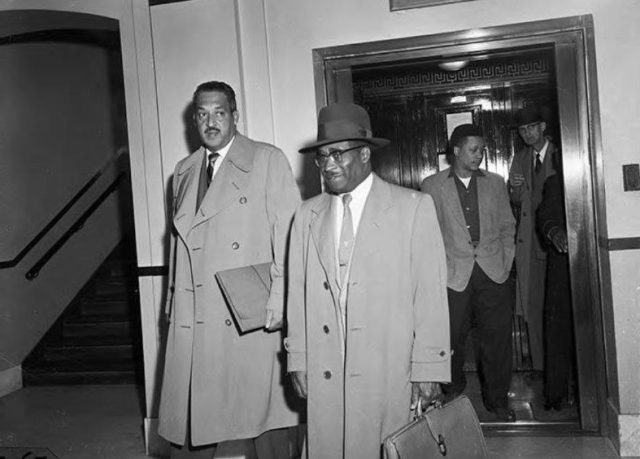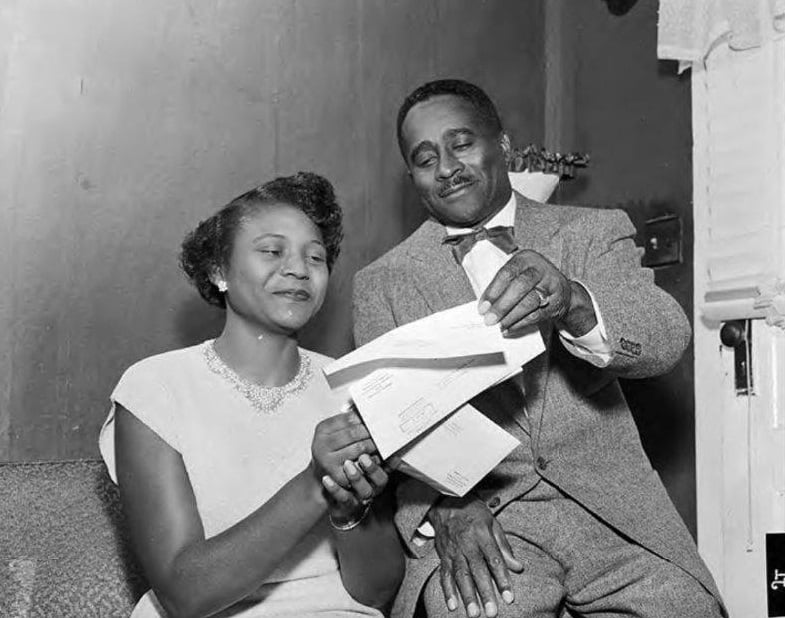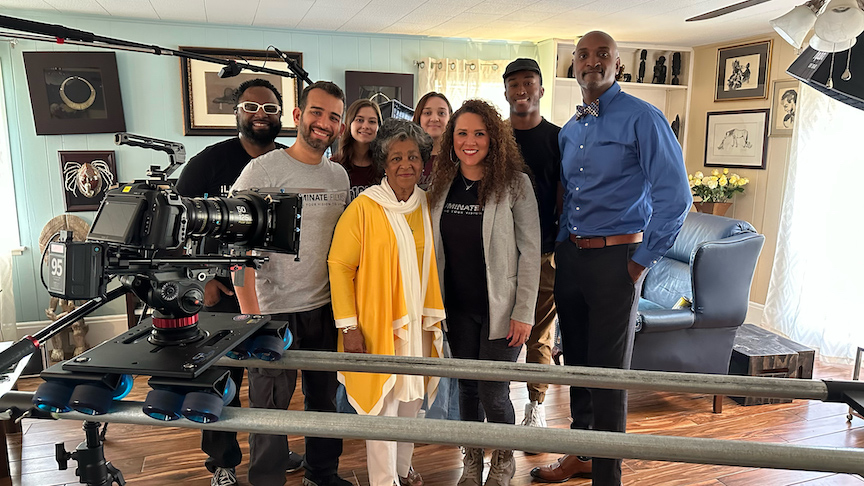
By Michael Sznajderman | Alabama News Center
A new documentary about pioneering Alabama civil rights attorney Arthur Shores explores his life and legacy over the decades he fought for racial justice – a mission that often put him and his family in physical danger.
“Defending Freedom: The Arthur D. Shores Story” premieres Feb. 15 at 8 p.m. on Alabama Public Television (APT). The one-hour film received its initial showing last week at the historic Carver Theatre in Birmingham, just across the street from where Shores maintained an office during the city’s darkest day of Jim Crow segregation.
The documentary is the seventh produced by Longleaf Studios at Jacksonville State University (JSU). Longleaf Studios offers JSU film and communication students the chance to work on projects with professional filmmakers.
In all, 11 students worked with Nashville-based Illuminate Films on the Shores documentary, which will be available for streaming on the APT website after its broadcast premiere.
Among those interviewed in the documentary is Shores’ daughter, Barbara, who still lives in the same Smithfield neighborhood in Birmingham where she grew up and where the Shores family home was bombed twice in 1963 by anti-integration terrorists.
Because of multiple racial bombings, the neighborhood – which ultimately integrated because of Shores’ legal challenges to the city’s racist ordinances – earned the infamous moniker: “Dynamite Hill.” Birmingham, in turn, endured its own notorious nickname: “Bombingham.”
Barbara Shores attended the premiere at the Carver Theatre, along with several other prominent Birmingham residents who were interviewed for the film, including Mayor Randall Woodfin, former Mayor Richard Arrington and retired judge Houston Brown, who grew up across the street from the Shores home.

Legal Giants
Born in 1904 in the old mining community of Wenonah in Jefferson County, Shores’ legal career spanned more than six decades. For years he was the only Black attorney in Alabama, starting in the late 1930s.
He quickly built a reputation for punching legal holes in the South’s segregation laws, in close coordination with the NAACP. Shores worked closely with major civil rights figures and legal giants, including Constance Baker Motley and future Supreme Court Justice Thurgood Marshall.
Speaking to the overflow crowd at the Carver Theatre before the film’s debut, Barbara Shores noted how Motley and Marshall would stay at their home when they were in Birmingham to join Shores for trial appearances on civil rights cases.
She said the film “continues the living legacy of my father” as well as her mother, Theodora, a teacher who was the quiet force that kept the family together during the darkest hours. Theodora was knocked unconscious during the second bombing of the Shores home and hospitalized. The couple were married for 54 years.
In 1955, Shores took on what would become his most famous case when he represented Autherine Lucy, a woman who was admitted to the all-white University of Alabama but then had her acceptance revoked when university leaders discovered she was Black. Shores served as the local attorney on the case, which was handled by the NAACP. A federal court ultimately ruled that the university couldn’t deny Lucy’s admission on the basis of her race, a victory later upheld by the U.S. Supreme Court.
In the spring of 1963, Shores represented the more than 3,000 adults and children arrested in connection with street protests against segregation during the climax of the Birmingham Campaign led by the Revs. Martin Luther King Jr. and Fred Shuttlesworth, according to the Encyclopedia of Alabama.
Later that year, in August, a bomb blast at the Shores home blew apart the garage doors and smashed windows. Then, on the night of Sept. 4, 1963, hours after the first two Black students were registered for class at the nearby, all-white Graymont Elementary School, a second bomb exploded in front of the Shores home, opening a crater about 2 feet wide and 18 inches deep. No one was ever arrested for the bomb attacks by Birmingham’s all-white police department, whose ranks were rife with segregation supporters and members of the Ku Klux Klan. Less than two weeks after the second bombing of the Shores home, Klan members bombed Birmingham’s Sixteenth Street Baptist Church, murdering four little girls.

“Loved The Law”
After segregation was outlawed nationwide under the federal Civil Right Act of 1964, Shores continued to fight for racial equality and, in 1968, was sworn in as the first Black member of the Birmingham City Council. He remained on the council until 1978. Shores died in 1996 at the age of 92.
“My father loved the law,” Barbara Shores said during the Carver Theatre event. “He worked very hard on making changes. … He never gave up.” At the same time, he always counseled against hate. He told Barbara exactly that after one of her dogs was blown apart by one of the bombs planted at the family home.
“‘You can’t hate,’” Barbara Shores recounted her father saying to her amid her tears. “‘It will destroy you. Let it go.’”
Seth Johnson, director of Longleaf Studios and associate dean of the JSU College of Arts, Humanities and Sciences, said it was fitting that students helped produce the documentary, since Shores was a teacher and a school principal before he devoted himself fully to the law.
“This has been a rewarding experience for our students,” Johnson told the crowd at the Carver Theatre.




